Guilherme Bergamini
Guilherme Bergamini is a photographic reporter and visual artist from Brazil who graduated with a degree in journalism. For more than two decades he has developed projects with photography and the various narrative possibilities that art offers. The works of his art dialogue between memory and social political criticism. He believes in photography as an aesthetic potential and transforming agent of society. Awarded in national and international competitions, Guilherme Bergamini participated in collective exhibitions in 43 countries. Visit Guilherme at guilhermebergamini.com
FEATURED ARTIST
Fotograma is a technique of image production without the use of camera obscura and having as a medium only the light for the formation of the image. Simply place an object on photosensitive media and expose to light. After the chemical processing has a negative image of the contour of the objects used. A pioneer in photographic development, William Henry Fox Talbot produced frames before even the "invention" of this technique. Anna Atkins, the British botanist, was the first person to realize the potential of photography in scientific works, using the cyanotype process for the production of her frames, producing the first picture book in history with photographic images in 1843, "Photographs of British Algae: Cyanotype Impressions.
The series "Photogram" is composed of leaves collected from the vegetation of the cerrado biome, delimited in a space of four hectares located in the municipality of Sete Lagoas, State of Minas Gerais, Brazil. The iconic shape of the leaves of this biome, fixed on paper, are like fingerprints or fragments of a plant identity. Occupying 24% of the national territory, the Cerrado Biome is the second largest Brazilian vegetable Amazon, the world's richest tropical savannah in biodiversity. Comprising three of the largest hydrographic basins in South America, it concentrates no less than a third of the national biodiversity and 5% of the world's flora and fauna.
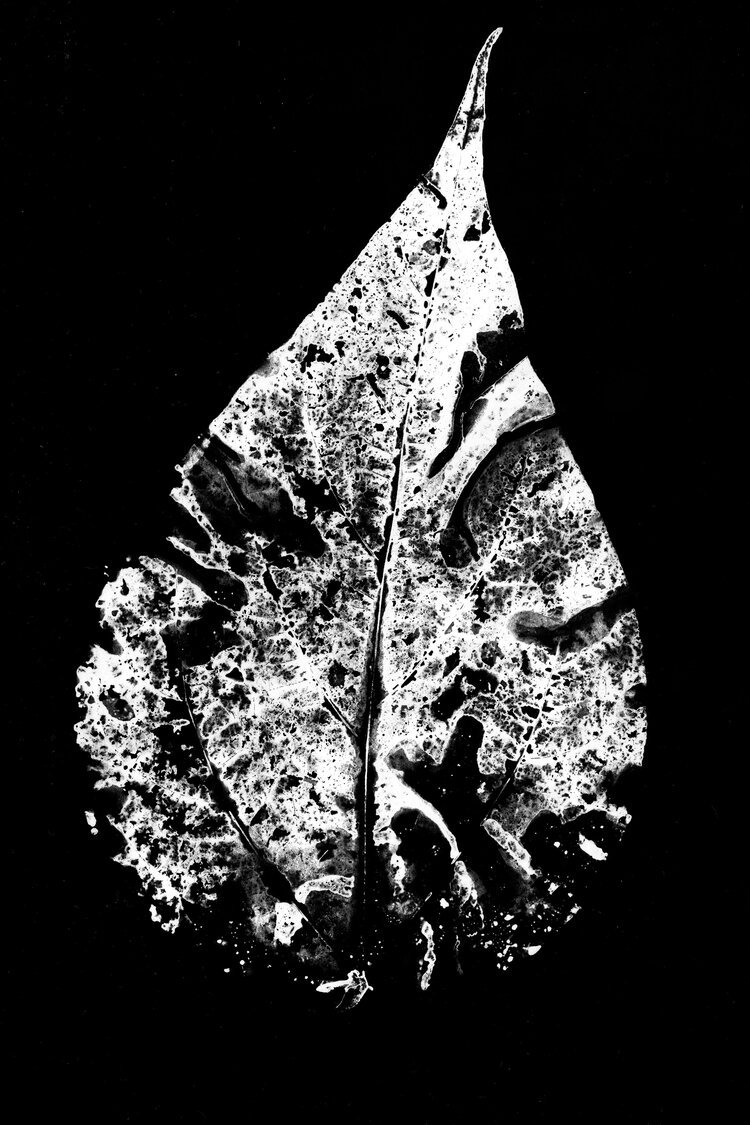
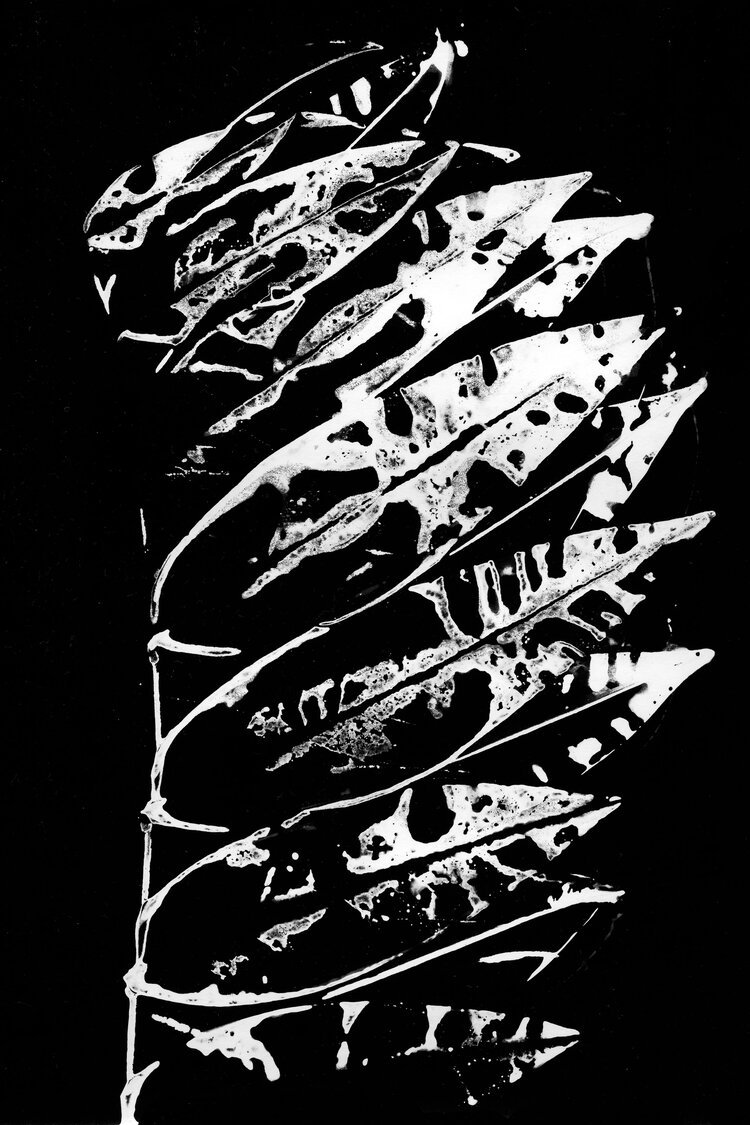
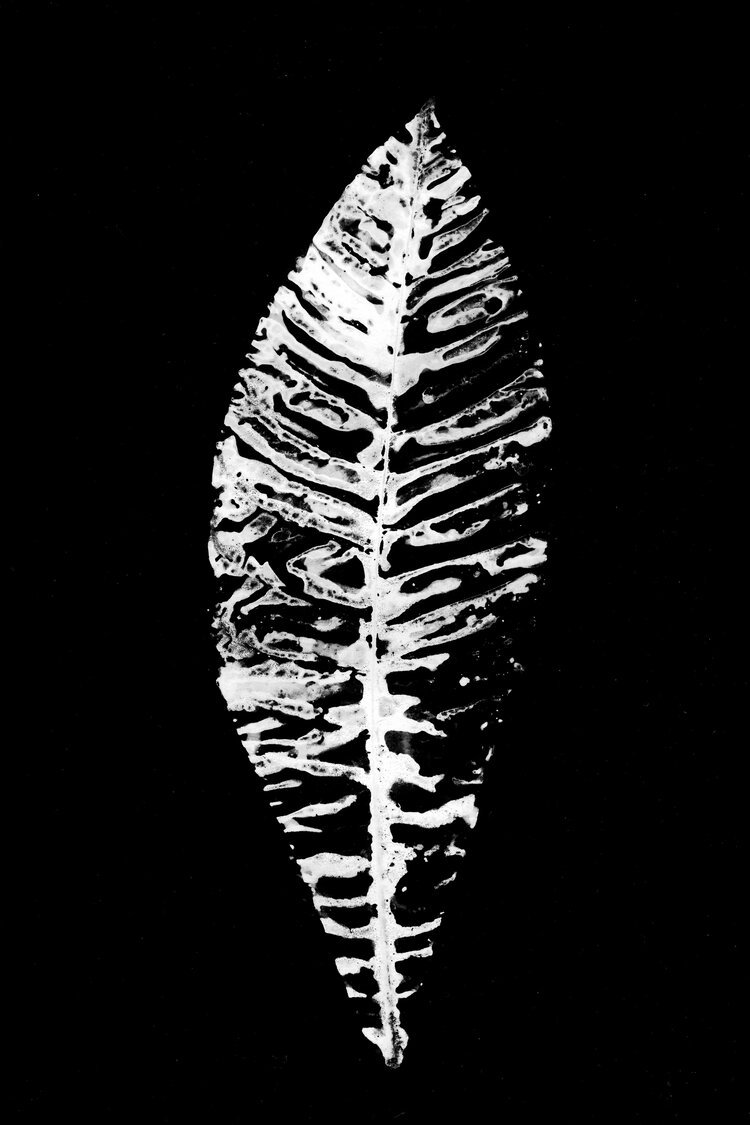

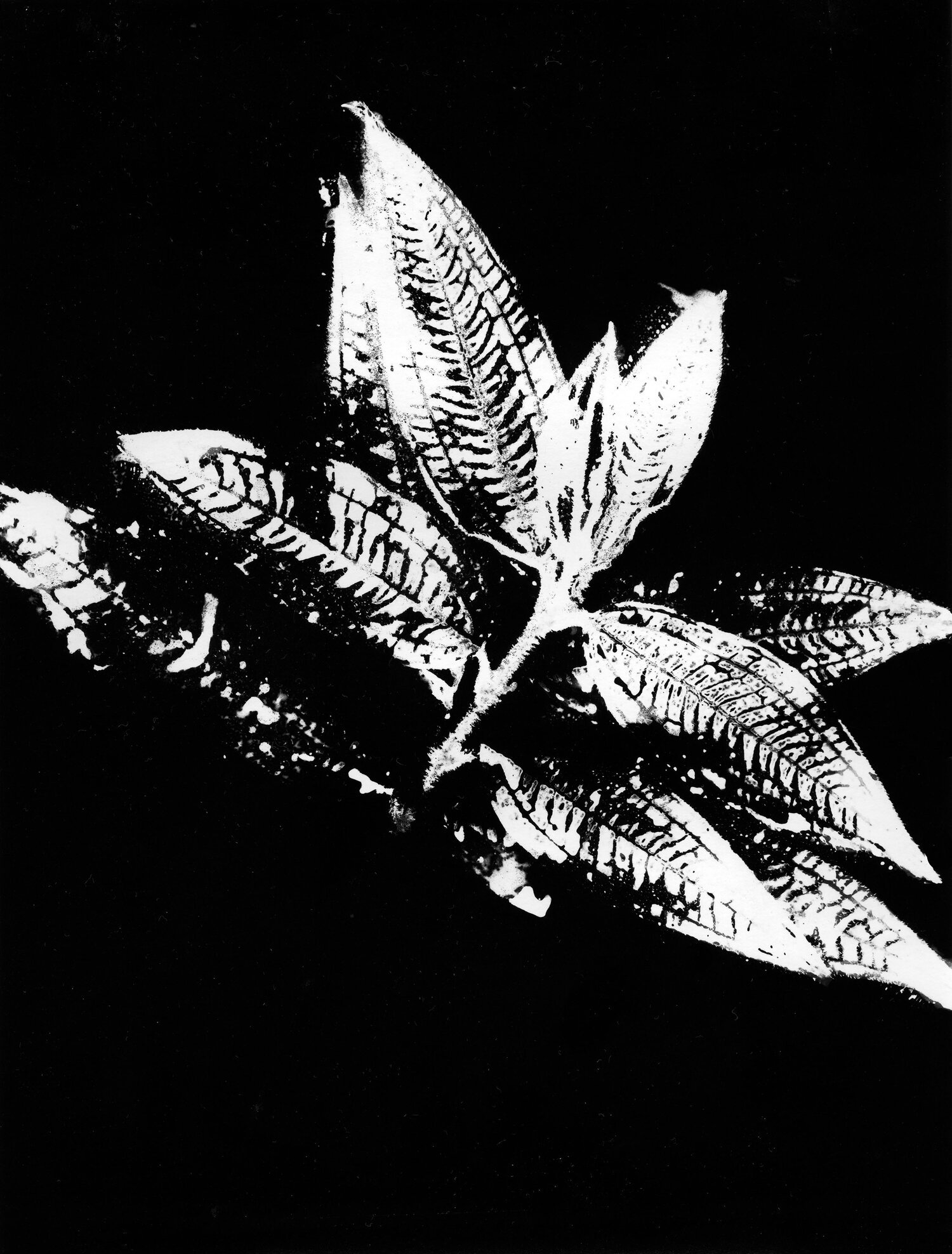
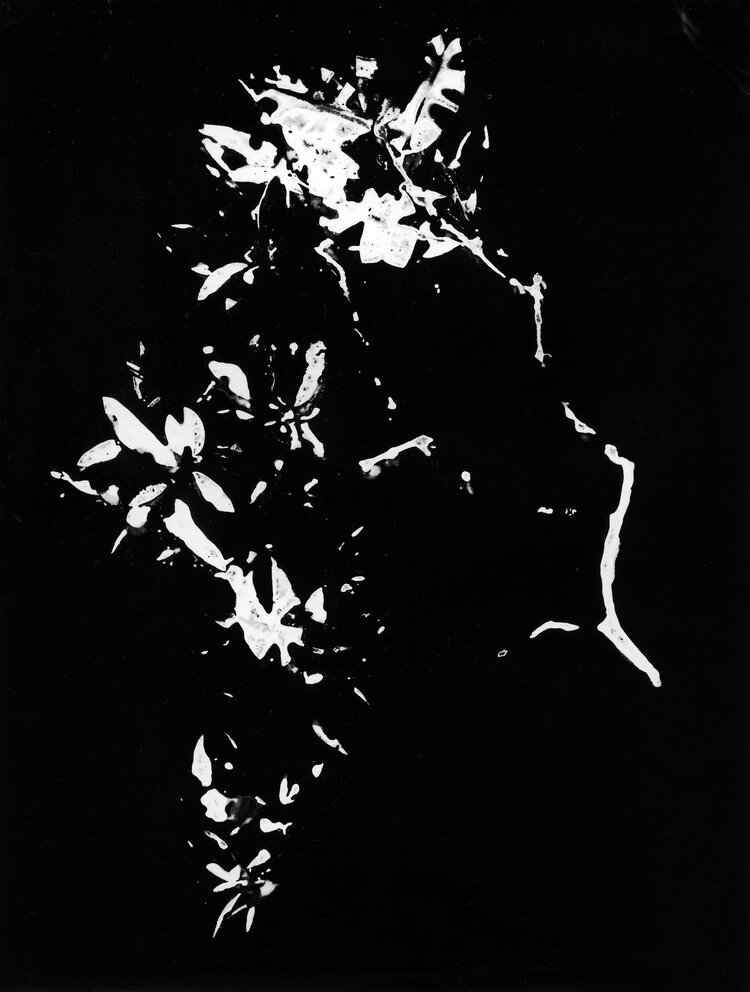
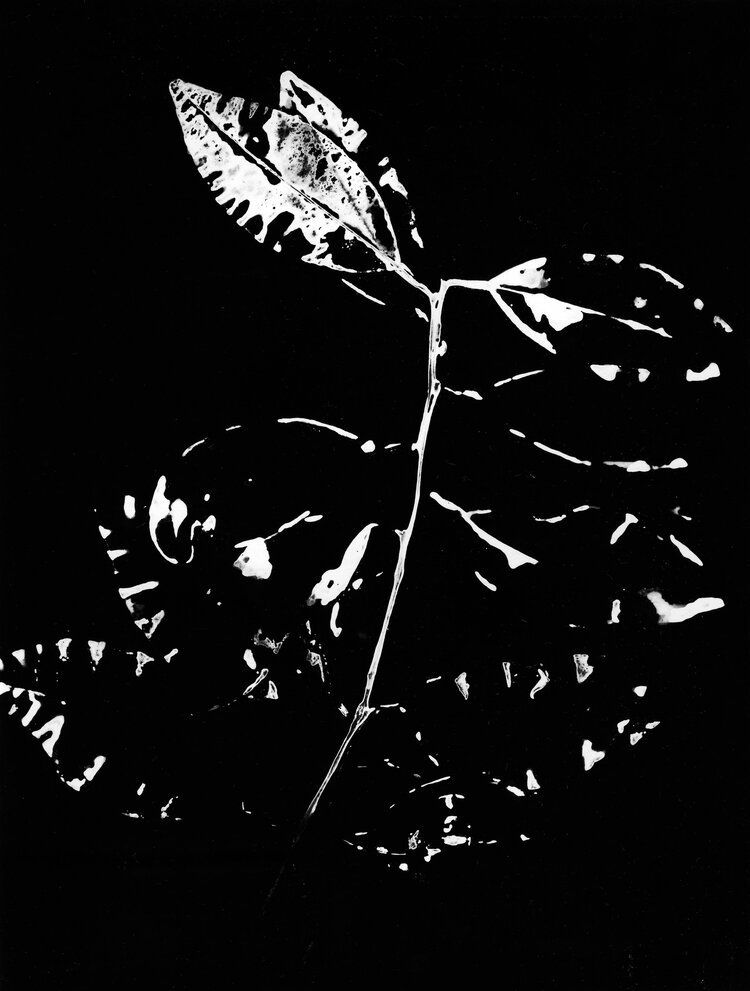
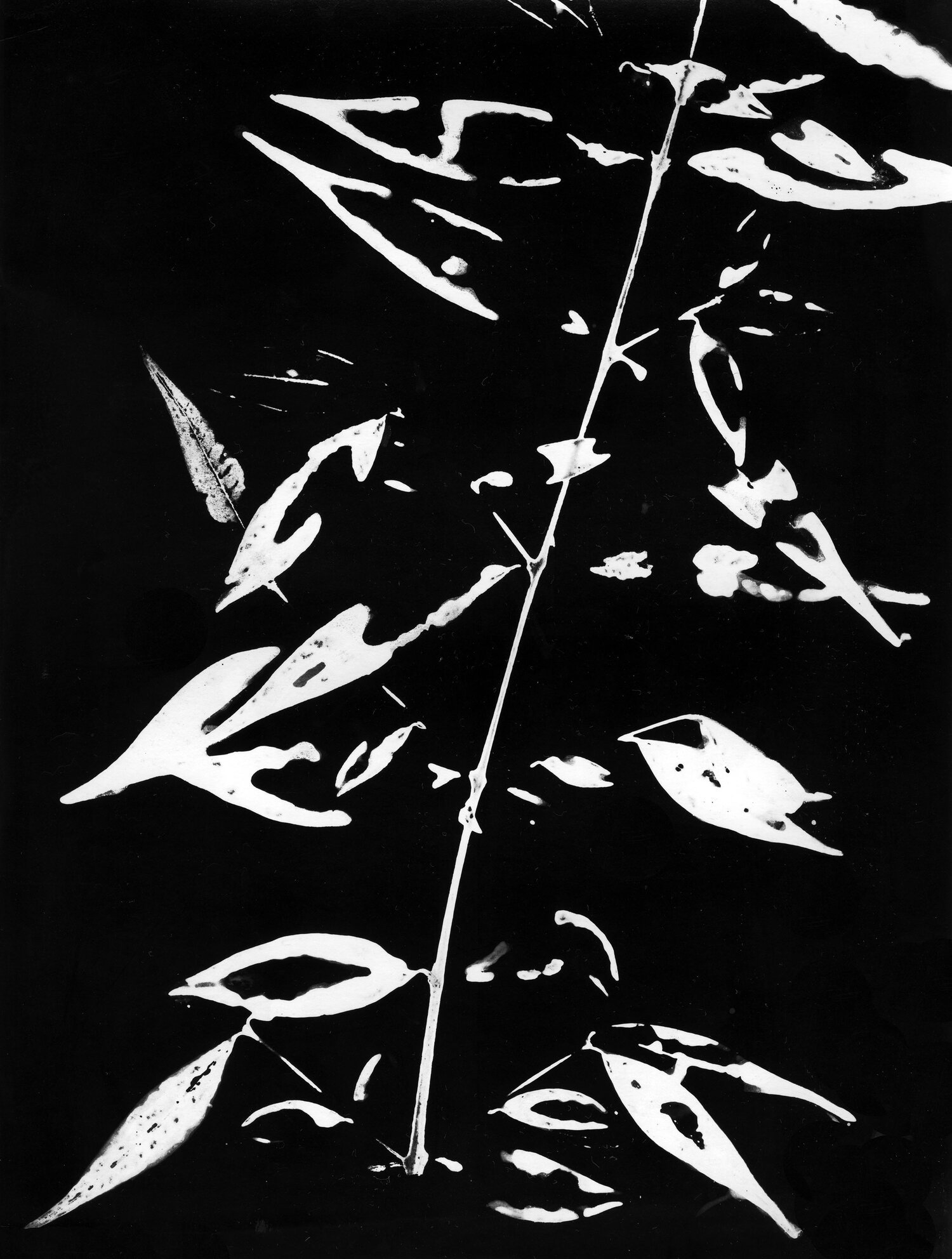
Guilherme Bergamini, Brazil, 2021
Source: Ministry of Agriculture, Livestock and Food Supply
Embrapa: Brazilian Agricultural Research Corporation

